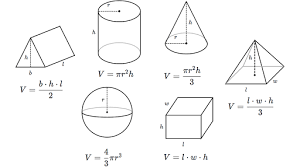Most teenage students require geometry help in 10th grade (sometimes 9th or 11th grade). Although high school geometry and all those geometry questions can seem overwhelming, many students find it easier to attack this subject by stepping back and systematically looking at each premise.
If you are looking at your geometry book online or in your hands and feel a wave of frustration and disorientation, you owe it to yourself to apply the following five strategies to your math self-learning. Not only will these tips make geometry less overwhelming, but they can be applied to other subjects including trigonometry and calculus.
Geometry Help Tip #1: Never move from a formula until you understand it.
Formulas fly across the pages of any geometry worksheet or textbook, and you might be tempted to simply bypass ones that seem too complicated or make little sense. Instead, begin to look deeper at the formula. Ask yourself what seems to make no sense to you, and start to investigate ONLY that formula on your own. Don’t worry about the formula in context with other formulas; seek to educate yourself on the basics of why the formula was developed and how it works.
As with any topic, understanding creates comfort. Yes, this takes some time and energy on your part, but it will help you get a broader realization of why each geometry formula is integral.
Geometry Help Tip #2: Do more homework than you are assigned.
You’ve finished your geometry homework, but still have a nagging sensation that you don’t quite “get it”. Rather than setting it aside, challenge yourself to do more problems. For instance, if you were assigned only the odd problems on a page in your online geometry book, do the evens, too. You can also look for age-appropriate geometry worksheets online. Print them out and exercise your brain.
This is no different than if you were an athlete preparing for an upcoming game, match, or race. Look at geometry as a sport, not as a mere subject to get through. Football requires coaching, and in like kind geometry needs math homework help.
Geometry Help Tip #3: Ask for help when you need it.
 Some geometry concepts are just tough to tackle on your own. At that point, you are doing yourself no good unless you reach out and get assistance. This can come from your high school geometry teacher or a peer who understands the topic well. Resist the feeling that asking for help is somehow a sign of weakness. It is a sign that you are an active learner who takes academic ability seriously.
Some geometry concepts are just tough to tackle on your own. At that point, you are doing yourself no good unless you reach out and get assistance. This can come from your high school geometry teacher or a peer who understands the topic well. Resist the feeling that asking for help is somehow a sign of weakness. It is a sign that you are an active learner who takes academic ability seriously.
Geometry Help Tip #4: Start a study group.
Do you find that it’s easier to learn in a collaborative working environment than by yourself in your room? Form a study group in school or even online. Be sure to stay on task, and work on problems through team-think. Make certain that your study group has a clear focus, and chart your individual progress. You should all see improvements if you are doing your studying correctly. Get the help of a tutor or teacher if your study group needs occasional check-ins.
Geometry Help Tip #5: Stop telling yourself you can’t do geometry.
This hint is for any subject but has a special place for mathematics. Many students – and you might be one of them – tell themselves that they cannot work with numbers. However, this closes their minds from possibilities. Instead of having a negative outlook on geometry and other math and science classes, remind yourself that you learned to do tons of things over your lifetime that seemed impossible or improbable. You can even begin with tutorials for tasks such as finding the volume of a cylinder. Perhaps you became a fantastic softball player or learned to play piano on your own. Mastering math is no different; it all begins with a can-do attitude and a willingness to work.


